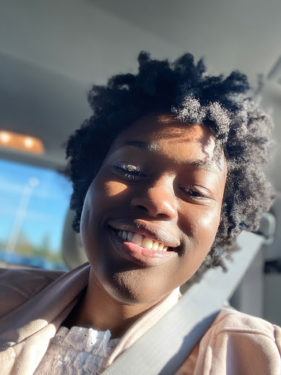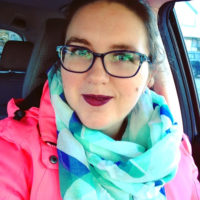What do you do when you can no longer go overseas for missions? You adapt, innovate, and continue to trust God through the process of finding new ways of connecting with people around the world.
Power to Change – Students had five mission trips planned for this summer — one national, four international — but they all had to be cancelled because of the pandemic. What then? Our global missions team sought God’s direction. Our heart was to find out how God is at work, even if we would have to use a different ‘airline’ this time, exchanging in-person for online ministry.
We didn’t want to do something for the sake of doing it, but instead wanted to innovate and try something new to continue to grow our heart for missions, while staying home. Something that still gives students the chance to share their faith. Something that still helps students to grow in their walks with God. Something that still allows students to try out missions and be a part of what God is doing globally as they learn about other places and interact with people who actually live there.
With that in mind, 37 students and 19 staff embarked on this pioneering endeavor: a digital mission trip (or DMT). For the month of May and beginning of June, we connected online with students, both in locations where we already have on-the-ground-partnerships and in areas where we’ve yet to physically go. In either case, we thought through how to use strategies that would match the country and culture.
The weekday routine was flexible, but often looked like participants connecting with their new friends in the morning or evening, depending on time zones. They would spend their afternoons connecting with their Canadian teammates: praying for different countries around the world, reading the Bible to understand God’s missional heart, and learning about the cultures they were ministering in. For Power to Change staff members, this was not only an opportunity to lead, but also to learn what it means to engage digitally with students — which may be an important skill for a long time.
This digital mission trip wasn’t a 24-hour commitment though. Most participants were also doing other things like working, studying, or being involved with local church communities. The DMT gave them the chance to learn how to incorporate ministry into life, since most people won’t end up in full-time vocational ministry. This was a space to learn how to balance life well.
As one staff member put it, we are in a pandemic of physical illness but also a “pandemic of panic, revealing senses of powerlessness, grief, loneliness, and hopelessness running rampant in our world. It was a moment to step into the dark with what the Father is doing. We have hope and peace because Jesus has overcome and others need to know.” – Justin C.
Over the six weeks of the mission trip, hundreds of people were engaged in meaningful dialogue and content. Some conversations expanded to not just one-time experiences, but friendships with students that will continue on, even once the DMT is over.
This trip wasn’t perfect. We’re still trying to figure out next steps. For example, we’re asking how do we get those we’re connecting with, in touch with Christians in their city? But for a first attempt, we praise God both for reminding us that we can trust him and that he continues to be at work in the world despite our limitations.
Now that you’ve gotten some context, it’s time to meet three of the students who participated. May you be encouraged that God continues to work around the world and here in Canada; nothing, not even a pandemic, can stop him from moving.
Shalom, why did you decide to participate?
“When my mission trip got cancelled because of the pandemic, a group of us who had all applied to go on missions decided to start a Bible study together, reading through Lamentations as we grieved and processed all that had happened. When I first heard about the DMT I wasn’t interested — I wanted to physically go somewhere, not just connect with people online.

As we were meeting in our Bible study though, God reminded us that even through lament, persecution, or whatever else, He will still do his work. There are some things that you miss out on by not going somewhere, but there are blessings about doing missions digitally too. I’m seeing that God’s heart for missions is for people to know Him, whether by physically going somewhere or connecting with them online.” ~ Shalom, University of Ottawa
Alana, what surprised you about this experience?
“I wasn’t expecting how much God would open up my heart for East Asia. I am surprised at how much God’s grown my love for the people there. By being able to connect with people digitally, I now have such a desire to meet these friends, to  experience what they’ve experienced. International missions is more of a possibility for me now than before.
experience what they’ve experienced. International missions is more of a possibility for me now than before.
It’s also incredible to recognize how much God is already working. We’re not the first ones nor the last ones to work in their lives — they are already people that God knows and loves. It’s discouraging to see the huge numbers of people around the world who have no opportunity to hear about Jesus, and yet God is so much greater than this challenge.” ~ Alana, University of Toronto
Silja, what’s a take away from what you learned?

“A take away for me is how to engage in conversations with my Muslim friends. This is something that I’ve often run away from. They can be complex conversations and I wasn’t confident. I felt I didn’t know enough about their beliefs to talk about faith with them. But I’ve learned so much about Islam; now I know where to start. One thing I didn’t know was many Muslims think Christianity is a polytheistic faith, with three gods. Now I understand why they would say ‘Allah is the only God’ when we talk about the Trinity. From the beginning of my conversations, I try to help people see why Jesus matters so much. I haven’t talked to my Muslim friends about faith, but I’m so encouraged to do so now. I can’t wait for quarantine to end so I can start conversations in person.” ~ Silja, York University
Adapted from P2C-Students’ blog. Read the full article here.


